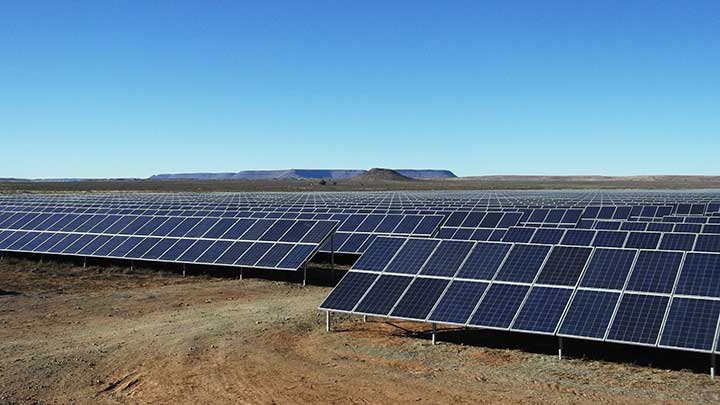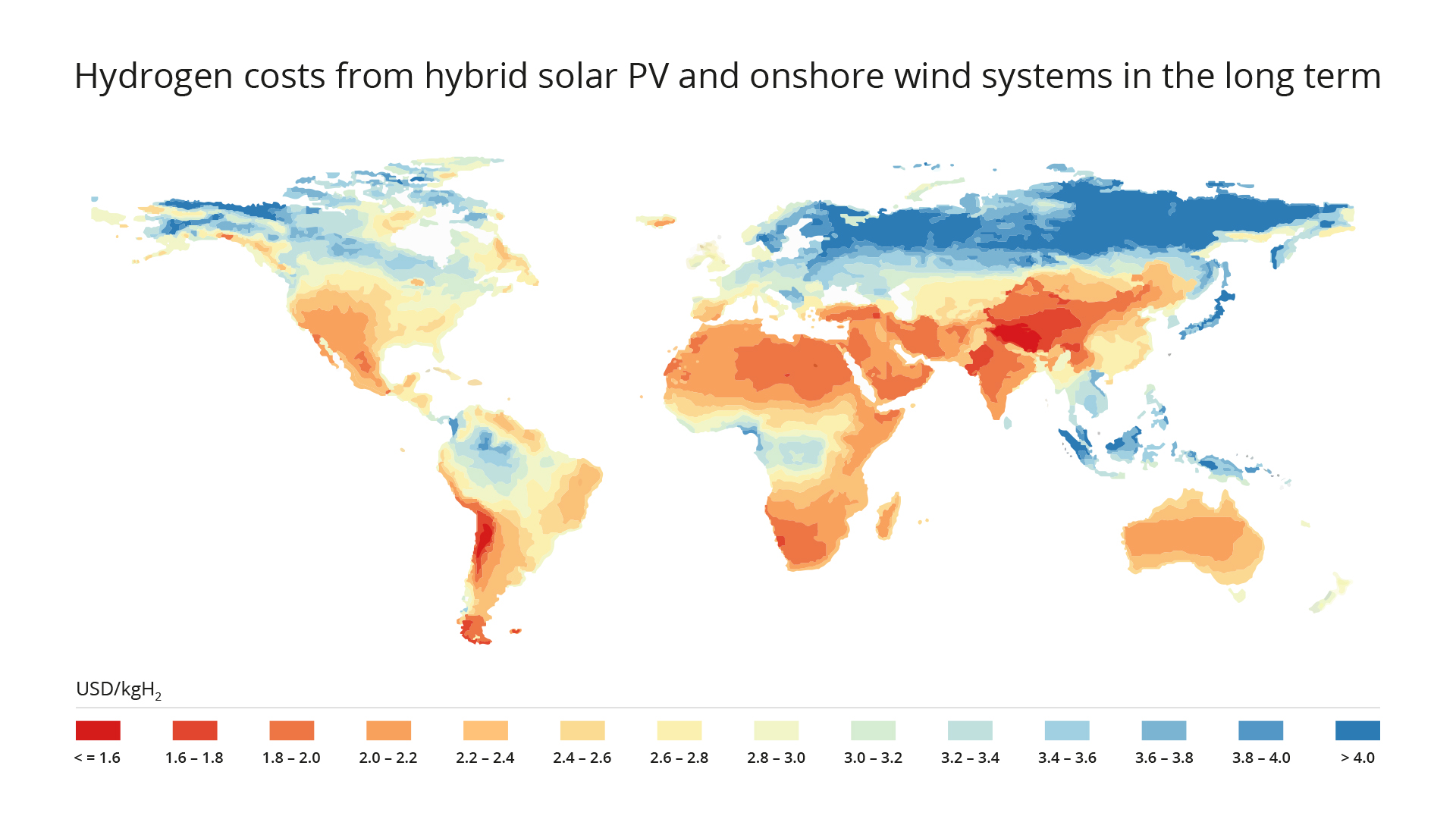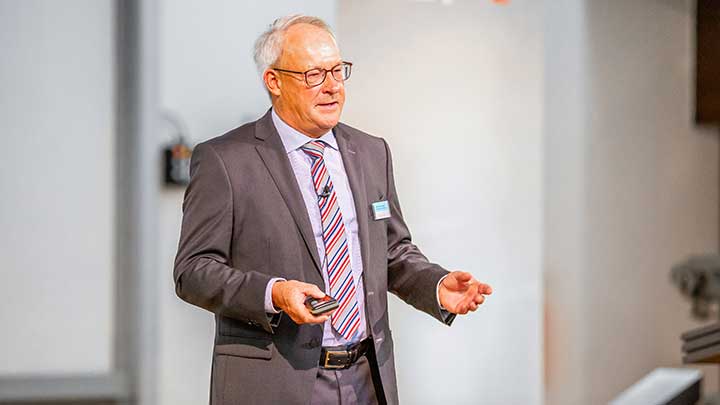Three experts examine how hydrogen won from Africa’s vast wind and solar resources could revitalize Europe’s energy transition.
In 2018, the European Union cut emissions by 2 percent – far from the 7.6 percent annual reductions the United Nations has calculated as necessary over the next decade to meet climate change targets. Energy consumption is expected to rise and heavy industry, transport and heating sectors remain stubbornly carbon-intensive. Importing green synthetic fuels rather than fossil fuels is part of the solution, experts argue – and all the better if it aids African development and stability.
By Janine Stephen
Europe’s energy transition at a crossroads
“In Germany, the energy transition hardly stands a chance – unless new paths are taken,” says Stefan Liebing, Chairman of the German-African Business Association. Currently, “the world market leader in applying renewable energy technologies”, cannot meet its own demand for clean electricity.
Like the rest of Europe, Germany has neither the renewable resources nor space to build enough wind and solar farms. Like the rest of the world, the country also has to decrease emissions in sectors other than electricity. “We import two-thirds of our energy needs in the form of fossil fuels: coal, oil and gas,” says Liebing. “To change that, Germany has to import green energy as well.” With the German government’s rollout of the Development Investment Fund for Africa German businesses are already investing record amounts in the continent, and there is strong interest in renewable energy projects.
We have a chance of producing new future ‘oil countries’ with hydrogen exports.
Coupling the transition to development in Africa
Renewable energy can be converted into storable and transportable carbon-free hydrogen and other synthetic fuels and chemicals using Power-to-X technology. This allows usually separate and hard-to-decarbonize sectors of the economy – such as heating
and cooling, transport, and industry – to be coupled with clean energy from the power sector and is a significant part of the European Union’s plan to achieve net-zero emissions by 2050. Africa, of course, can produce large amounts of
extremely cost-efficient renewable energy, which could then be exported to Europe.
"It could be the basis of a whole new industry that brings money and jobs to Africa,” says Liebing. “Done right, we have a chance of producing future ‘oil countries’ with hydrogen exports. Billions of dollars every year will come from Europe to buy green fuels and green energy from Africa.” Furthermore, the emergence of a new green hydrogen industry would complement the effort to support economic development and job creation in African countries.
Massive investments from Europe in energy across Africa would come at the right time. The big opportunity for Africa is to leapfrog into 21st century technologies – and it’s possible, now that in most countries in the world, renewables are cheaper than fossil fuels (excluding gas). “Prices over the last decade have dropped by 90 percent,” says Mark Swilling, Distinguished Professor of Sustainable Development in the school of Public Leadership at Stellenbosch University and Deputy Chairperson of the Board of the Development Bank of Southern Africa.

To quickly scale up renewables in Africa, according to Professor Swilling of Stellenbosch University, will require new regulatory and financial frameworks that move away from fossil fuels.

Green hydrogen costs are expected to decrease in those parts of the world where sun and wind are prevalent, including large parts of Africa. Thanks to Power-to-X, these regions could become exporters of green fuels to the rest of the world. Source: IEA
Africa’s energy choices have global consequences
To scale up the move to renewables at speed in Africa, Swilling recommends bottom-up, decentralized solutions with flexible regulatory and financial frameworks – as well as top-down, economy-wide system restructuring to transform existing utilities.
Policy change is essential to accelerate moves away from fossil fuels: Renewables in South Africa, for example, would have to grow between 3 and 5 gigawatts a year to meet targets to be carbon neutral by 2050.
Not long ago, the total installed electrical generation capacity of France equaled the total electricity generation capacity on the African continent, says Swilling. Today Africa generates around 168 gigawatts compared to France’s 129 gigawatts – and France has 70 million people compared to Africa’s 1.2 billion. “Many African economies are growing quite fast. So if Africa energizes using fossil fuels, none of the climate targets agreed in Paris will be achieved. What that means: The whole world has an interest in the future energy choices in Africa.”
Working towards win-win partnerships

Marc Grünewald, Head of Business Development, Power and New Energies at MAN Energy Solutions see the development of a hydrogen industry in Africa as a “win-win situation” for African economies and the energy transition in Europe.
The major obstacle to a renewable boom and a green hydrogen industry in Africa, Swilling believes, is the old fossil fuel system’s regulatory frameworks. The transition will depend on redesigning these outdated instruments to accommodate the new
order – as well as dedicated leadership and wider political coalitions. Moreover, the capacity to ramp up in ways that allow local economies to take full advantage of the economic opportunities in different sectors is equally important for a
just transition that benefits everyone.
“Fighting climate change will bring Europe and Africa together,” says Marc Grünewald, Head of Business Development, Power and New Energies at MAN Energy Solutions. “Today, there’s already a shift from providing development
aid to creating economic partnerships where both sides benefit.” European companies can work with North African countries such as Morocco, Tunisia and Algeria to further develop renewable resources and produce affordable green fuels and chemicals
such as green ammonia for export – and the premium prices these companies are prepared to pay will provide the initial impulse for the industry.
Moreover, using renewables in African countries to produce green hydrogen and other synthetic fuels and chemicals could also mean these countries will no longer have to import fossil fuels or carbon-intensive chemicals for their own industries. Morocco, for example, which imports the majority of the ammonia needed in its fertilizer industry, could become self-sufficient.
As Africa’s demand for energy accelerates, Grünewald is already seeing renewables like solar photovoltaics with battery energy storage systems grow in popularity due to the relatively low capital and operating expenses required. “In general,” he says, “if renewable energy shares grow to more than 20 percent of the total grid size, many countries experience a lack of grid stability. Therefore, in order to have reliable and effective green energy it’s mandatory to have short-term energy storage solutions such as batteries and long-term solutions such as Power-to-X added to any renewable ecosystem.” In addition, the hydrogen and synthetic fuels generated by Power-to-X can also be used directly in transport or industrial processes, reducing the need for electricity in those sectors and further relieving the grid. “It’s a win-win situation,” says Grünewald, “With the money generated, African countries can boost their own economy and infrastructure, resulting in increasing living standards.”
Fighting climate change will bring Europe and Africa together.
About the author
Based in South Africa, Janine Stephen is an award-winning journalist whose work has appeared in international and local publications such as South Africa’s The Sunday Times.
Explore more topics
MAN Energy Solutions is now Everllence.
We have adopted a new brand name and moved to a new domain: www.everllence.com. This page will also be relocated there shortly. We are working on shifting all pages to www.everllence.com.
